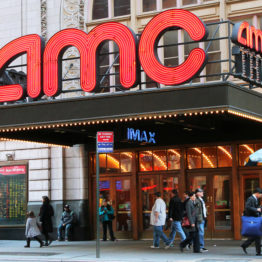
You will need to enter into an “Option / Purchase Agreement” prior to developing, shopping, and producing a screenplay based upon a pre-existing literary property whose copyright you do not own and which is not in the public domain. During the term of the Option/Purchase Agreement, you will have the exclusive right, the “option,” to buy the literary property for an agreed upon price. No one will be able to buy the literary property out from under you while you have it under option. You may purchase the literary property by exercising the option prior to its expiration date and paying the agreed upon purchase price. During the option, you can develop the literary property, hire a writer to create a screenplay based upon it, shop the screenplay, cast, and secure production financing. Since you do not want to spend money buying a literary property you may never use, you wait until you are 100% sure that you are producing the picture. Most producers wait until the commencement of pre-production or principal photography to exercise the option and pay the purchase price.
Options usually run in one-year increments (“option period(s)”) and can have one or more extensions. I recommend my clients secure the longest option they can negotiate since the average time to get a picture produced is seven years. It is unlikely that you will be able to secure a seven-year option, but should at least be able to convince the writer to grant you an initial one-year option with two one-year extensions. The writer will be motivated to extend beyond the third year if you have made progress towards production, such as attaching talent, a director, a sales agent, and/or at least a portion of the financing.
You pay an “option fee” for each option period. The amount depends on the perceived value of what you are acquiring. For example, a self-published or obscure book is worth less than a bestseller, a screenplay by an unproduced writer garners a lower option fee than a screenplay by one with a string of box offices hits to his credit, and an unproduced play is worth less than a Broadway or West End hit. My clients have paid option fees as low as $1 and as high as $25,000 per option period.
Note that authors and publishers tend to believe that an option fee equal to 10% of the purchase price is industry standard. It is not. Everything is up for negotiation. Offer what you can or are willing to pay or WGA dictates. The WGA requires that its members be paid an option fee equal to no less than 10% of the applicable WGA minimum purchase price (for a term not to exceed 18 months). As of May 2015, the WGA minimum for a high-budget completed screenplay is $93,257. The option fee required for a purchase price of $250,000 is only $9,235—not $25,000.
You may be able to deduct all or some of the option fees from the screenplay’s purchase price if you make them “applicable” against the purchase price. Though it is all up for negotiation, usually the first option fee is applicable and the subsequent ones are not. Again, this is all up for negotiation. For example, if you have paid $10,000 inapplicable option fees, when you exercise the option you pay $90,000 of the total $100,000 purchase price. Option fees that are not applicable do not get deducted from the purchase price. If you cannot offer a fair option fee, make a concession and offer non-applicable option fees.
The option will terminate if you do not formally extend it and pay the required option fee prior to its expiration date. Two weeks prior to the option’s expiration, email and simultaneously mail a letter of extension informing the owner of your intention to extend, along with the requisite option fee. Send the letter by messenger or personal delivery, or mail it via the U.S. Postal Service Return Receipt Requested, and follow up prior to the expiration if you do not have proof of receipt by then. The writer may not grant you another option if you let the option expire, so do everything possible to extend it on time.
Purchase Price
Purchase prices are based on supply and demand, the picture’s production budget, the writer’s track record, and the picture’s projected profitability. WGA members and playwrights may be paid more but not less than the sums prescribed by the WGA and the Dramatists Guild (playwrights union). Non- members of the WGA and Dramatists Guild, novelists, and others can sell their literary property for as little or as much as they are able to negotiate because there is no such thing as a “standard” purchase price.
Sale prices for screenplays typically range between 1% and 3% of the cash production budget of the picture. If the production budget is not known going into the negotiations, I suggest a purchase price based on a sliding scale, e.g., “for a picture not to exceed $15,000,000 dollars, the purchase price shall be 2.5% of the cash budget of the picture, but in no event less than WGA low budget minimum and no more than $300,000.”
Additional Compensation
If the option fees or purchase price are on the low end due to limited development or production financing, I offer additional compensation in the form of deferred compensation, a Set-Up Bonus, Box Office Bonus, and/or Nomination/Award Bonus. How much and exactly what is offered depends on the literary property that is being optioned.
Profit Participation
It is standard to allocate writers 5% of the picture’s or producer’s net profits for the screenplay (see the “Work-for-Hire Agreement” section herein for a detailed explanation of net profits). How much you offer other authors depends on what you are acquiring, what it is worth, and what the industry standard is, if any. Regardless, I do not have a problem agreeing to up to 5% of the producer’s net profits because there would be no picture without the literary property used to develop the screenplay and because doing so may improve the overall deal.
Separated Rights
WGA members will be entitled to separated rights if they receive a “Story By,” “Screen Story By,” or “Written By” credit (see the Separated Rights discussion in the “Work-for-Hire Agreement” section above). Non-members of the WGA may attempt to reserve publishing, stage and radio rights, but I dissuade producers from doing this since the studios want to acquire everything, and equity investors want every opportunity possible to recuperate their investment.
Sequel, Remakes…
It is standard for the producer to pay the writer of an original screenplay additional monies if she produces a sequel and/or remake based on the original screenplay (see the “Sequel, Remakes” paragraph in the “Work-for-Hire Agreement” section above).
Credit
Screenwriters and owners of source material are credited onscreen and in paid ads, subject to the distributor’s customary exclusions (see the “Work-For-Hire Agreement&rdquo section above). The authors of books and other literary property may receive a “Based Upon” or “Inspired By” by credit.
Option Reversion
You need do nothing to affect the expiration of an option because all rights in and to the literary property automatically revert upon termination of the Option Agreement. Note that the owner retains any and all options and writing fees paid to him without the obligation of repayment.
Turnaround Right
The WGA bestows upon its members the right to reacquire a screenplay that was actually purchased if it has not been produced five years after the date of acquisition and/or the completion of writer’s writing services if the screenplay is not in active development (and does not go into active development within 60 days of the writer’s turnaround notice), whichever is later.17 The producer has the option of placing the screenplay into active development within 60 days of the writer’s turnaround notice (the producer must hire a writer to rewrite it, or hire the director or a major actor on a pay or play basis). This “turnaround” right has become an industry standard for non-members of the WGA, too. Non- members of the WGA usually have an 18 to 24-month window to reacquire their literary property if the producer has not produced it within 5-8 years after purchase. The literary property’s owner will have to reimburse the producer’s direct out-of-pocket purchase and development costs.
Shopping Agreements
It is possible that the owner of a literary property may decline to enter into an Option/Purchase Agreement with you if you lack option monies and/or a track record. The agent and/or owner of the literary property may want to limit how long you take the literary property off the market since you cannot offer an option fee that justifies doing so. A Shopping Agreement will give you up to a year to find a buyer/financier who can enter into the Option/Purchase Agreement. It is the equivalent of a letter of intent, except that you have exclusivity over the literary material for the term of the Shopping Agreement. The buyer/financier, not you, will enter into the Option/Purchase Agreement with the writer, and the deal terms are not negotiated until that occurs. It is not out of the question that you might raise money and attempt to convert the Shopping Agreement into an Option/Purchase Agreement. Whether you can depend on what you have to offer and whether the writer has confidence in you











